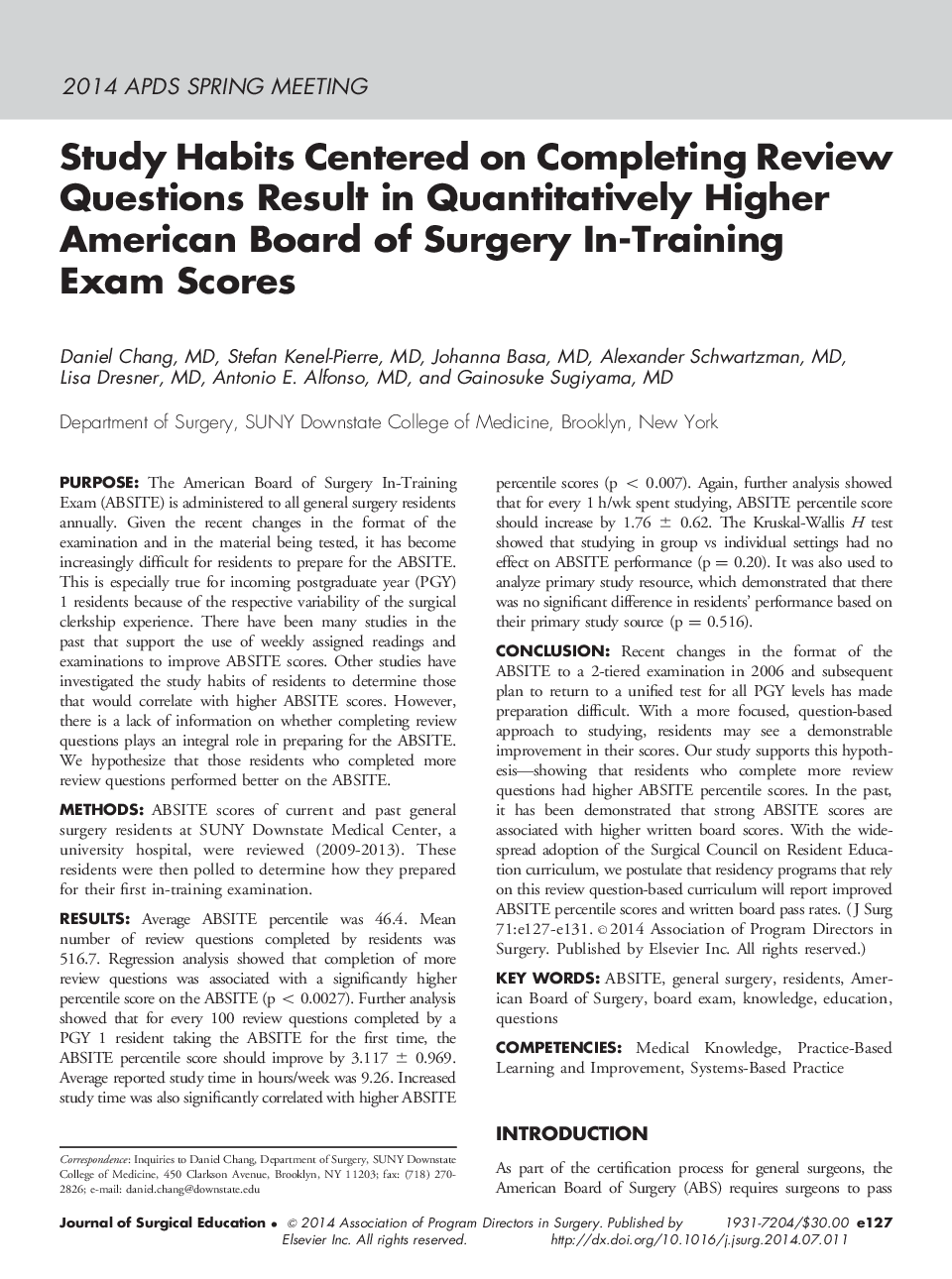| کد مقاله | کد نشریه | سال انتشار | مقاله انگلیسی | نسخه تمام متن |
|---|---|---|---|---|
| 4297911 | 1288335 | 2014 | 5 صفحه PDF | دانلود رایگان |
PurposeThe American Board of Surgery In-Training Exam (ABSITE) is administered to all general surgery residents annually. Given the recent changes in the format of the examination and in the material being tested, it has become increasingly difficult for residents to prepare for the ABSITE. This is especially true for incoming postgraduate year (PGY) 1 residents because of the respective variability of the surgical clerkship experience. There have been many studies in the past that support the use of weekly assigned readings and examinations to improve ABSITE scores. Other studies have investigated the study habits of residents to determine those that would correlate with higher ABSITE scores. However, there is a lack of information on whether completing review questions plays an integral role in preparing for the ABSITE. We hypothesize that those residents who completed more review questions performed better on the ABSITE.MethodsABSITE scores of current and past general surgery residents at SUNY Downstate Medical Center, a university hospital, were reviewed (2009-2013). These residents were then polled to determine how they prepared for their first in-training examination.ResultsAverage ABSITE percentile was 46.4. Mean number of review questions completed by residents was 516.7. Regression analysis showed that completion of more review questions was associated with a significantly higher percentile score on the ABSITE (p < 0.0027). Further analysis showed that for every 100 review questions completed by a PGY 1 resident taking the ABSITE for the first time, the ABSITE percentile score should improve by 3.117 ± 0.969. Average reported study time in hours/week was 9.26. Increased study time was also significantly correlated with higher ABSITE percentile scores (p < 0.007). Again, further analysis showed that for every 1 h/wk spent studying, ABSITE percentile score should increase by 1.76 ± 0.62. The Kruskal-Wallis H test showed that studying in group vs individual settings had no effect on ABSITE performance (p = 0.20). It was also used to analyze primary study resource, which demonstrated that there was no significant difference in residents’ performance based on their primary study source (p = 0.516).ConclusionRecent changes in the format of the ABSITE to a 2-tiered examination in 2006 and subsequent plan to return to a unified test for all PGY levels has made preparation difficult. With a more focused, question-based approach to studying, residents may see a demonstrable improvement in their scores. Our study supports this hypothesis—showing that residents who complete more review questions had higher ABSITE percentile scores. In the past, it has been demonstrated that strong ABSITE scores are associated with higher written board scores. With the widespread adoption of the Surgical Council on Resident Education curriculum, we postulate that residency programs that rely on this review question-based curriculum will report improved ABSITE percentile scores and written board pass rates.
Journal: Journal of Surgical Education - Volume 71, Issue 6, November–December 2014, Pages e127–e131
